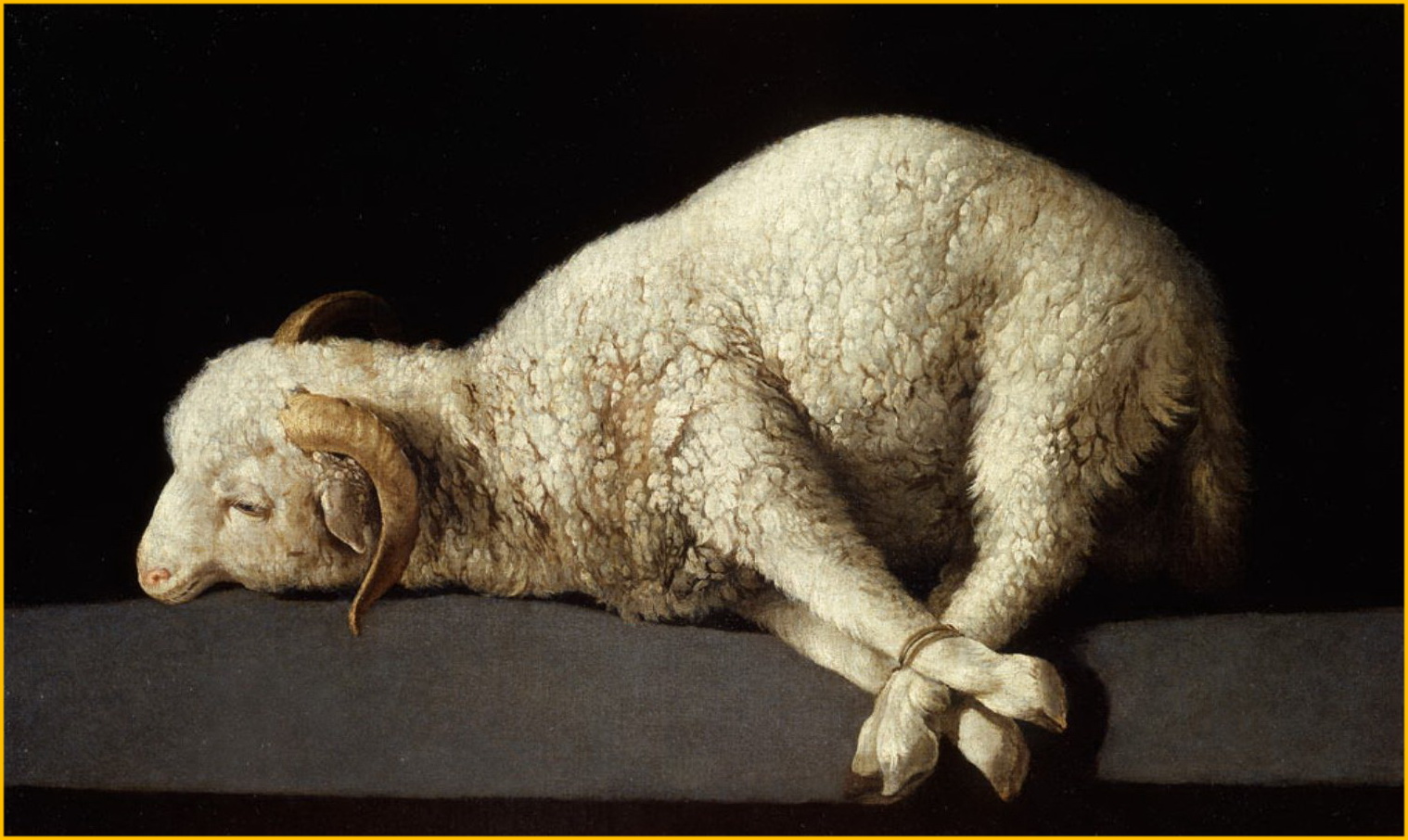On an appointed day by God when John the Baptist was preaching in the desert, Jesus came. And at that moment John spoke by prophecy a statement which revealed Christ’s lordship and deity, as well as speaking about Christ’s mission which was about to be revealed to the world.
He cried out … “Behold the lamb of God who takes away the sin of the world.”
This declaration was stunning on so many levels and spoke to the hearts and minds of those rooted in Jewish tradition and beliefs.
- The Prophetic Symbolism of Lamb: Every Israelite understood that lambs were born and chosen as animals used to sacrifice and atone for their sins. Every year since Israel was delivered from Egypt, the Jewish people celebrated Passover, and during this feast they would take a lamb to their home, and keep it for four days. During those days, they examined the animal, and copiously checked its body for any aberation, abnormality, or deformity. If such was found, the animal was discarded, and another would be chosen. The perfect lamb’s blood was shed for atonement and forgiveness of sins. John’s statement concerning Christ being the “Lamb of God” pointed completely to the ideas that Jesus was the One who would be sacrificed for the perfect atonement and sacrifice for sin.
- A lamb for “the sin of the world.” This prophecy declared to the Israelites present that Jesus would be the sacrifice for every person of every ethnicity and not for the Jewish people alone. This reveals to us the universal nature of sin, where Paul stated, “All (every human, of every race and ethnicity) have sinned and come short of the glory of God.” – Romans 3:23 Take note of this universality of John’s declaration that Jesus is the “lamb for the sin of the whole world.” For every ethinicity, for every people group, for every individual. It’s God’s desire that God “desires all people to be saved and to come to the knowledge of the truth.” – 1 Tim 2:4
- The “SIN of the world” – It’s interesting to note that John used the word sin in it’s singular form. Christ indeed came to bear the sins (plural) of all of humanity for all time, but He also was sacrificed to take away the SIN nature of man, and to redeem mankind, giving the power of the new birth, and a new nature. If we can reason our lives with Christ being like a fruit tree, then the fruit (let’s say apple), is the result of the life of the tree. Man would like to work on his sins and problems to try and reform and change his life, but the problem with human works and human reforms is that if the root of the tree is sinful, then the fruit will keep popping up in different seasons of life. No, Christ didn’t come to help us be better people. He came to give us new life, and to take away our “SIN” nature, and to give us eternal life. 2 Corinthians 5:17 states – “Therefore, if anyone is in Christ, the new creation has come: The old has gone, the new is here!” (NIV) This verse teaches us that a radical change comes into the life of of those who receive Him. We are forgiven of all of our sins, and redeemed from SIN, and given a new nature. When we receive Christ, we become the children of God.
- The Hope and Expectation of the Messiah. A constant discussion in the framework of the culture and religious life of the Jewish people, was concerning their hope for the coming of the Messiah. The Messiah would come and save people from sin, and deliver them from bondage. This was an increasing awareness in every Israelite’s mind, for at the time of Christ, they were under the oppressive rulership of Rome. John’s declaration was that Jesus was that long-awaited Messiah, The Messiah wasn’t however wasn’t expected to be a sacrificial lamb, but a conquering king.
Have you received Christ as the Lamb of God, as your sin bearer and deliverer, and as your Messiah and Lord? He is the only one who has the power to forgive all your sins, and to redeem your life. If you call on Jesus in faith and prayer, and ask Him for forgiveness of your sins and faults, and then confess Him as Lord of your life, you will receive eternal life, and enter into a personal relationship with Christ. This is the start of what Jesus promised in John 10:10 ” … I have come that they might have life in abundance.”
Featured Image: Agnus Dei (Lamb of God) – by the Spanish master – Francisco de Zurbarán – c 1635-1640










